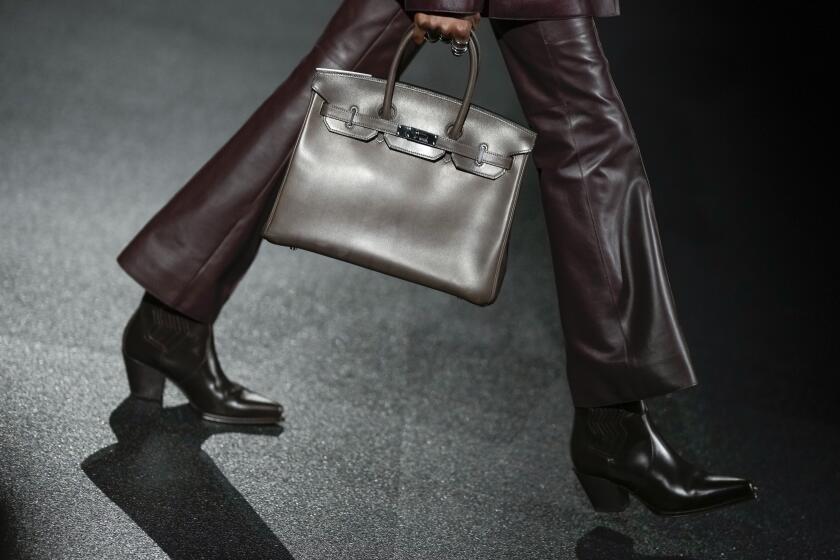
The dark-green handbag was not her only Birkin, but it was the only one she left behind when she went to Europe. So it was there last year when two burglars jumped a retaining wall at her Pacific Palisades mansion and smashed through a sliding door on the pool deck.
They were in and out in 15 minutes, a security camera showed, moving with speed and strategy. They raced past computers and televisions to get to her walk-in closet. On a shelf alongside dozens of other luxury handbags she had been collecting since her teens sat the Birkin.
“I had only worn it once, on my birthday,” said the woman, who spoke on the condition of anonymity for fear of inviting another burglary. The thieves took the Birkin, most of the other bags, and, revealingly, receipts from a drawer in her home office that established the authenticity of many of the purses. “They were,” she said of the thieves, “like trained assassins.”
She thought the Birkin was gone forever. But months later, she was shocked to find it for sale on a sleek website catering to other women who prize such handbags.
The Birkin, Hermès’ capacious leather carry-all, has long been coveted by celebrities and fashionistas. Now, it and other status-symbol purses have become objects of obsession for a less glamorous set: home burglars. Sophisticated theft gangs from South America are suspected in a rash of residential break-ins across the country in recent years, including the one in the Palisades. The gangs are particularly adept at converting the bags to cash and are choosing their targets accordingly.
“Where the homes are worth a lot of money, the assumption is there will be high-end handbags,” said LAPD Capt. Francis Boateng.
Subscriber Exclusive Alert
If you're an L.A. Times subscriber, you can sign up to get alerts about early or entirely exclusive content.
You may occasionally receive promotional content from the Los Angeles Times.
The thieves quickly unload Birkins and other luxury brands to specialized fences for thousands of dollars, the Los Angeles Police Department said. Those fences then sell them to legitimate resale sites, where Hermès lovers snap them up for relative bargain prices as low as $15,000 a bag.
It is a pipeline that effectively transfers bags from the closets of the extremely rich to those of the merely very well-off.
The Palisades case, as detailed in court records, police affidavits and interviews, provides a rare window into the practice: The burglars sold the Birkin, valued by the owner at about $37,000, to a woman who is accused of fencing bags in the parking lot of a North Hills discount grocery. She in turn sold it to an upscale Dallas resale site; Redeluxe is owned by an erstwhile YouTube pastor and his wife and promises its refined clientele of influencers and Hermès enthusiasts “a trustworthy luxury shopping experience.”
Redeluxe was advertising the Palisades bag — or one that appeared identical to it — as recently as last month for $25,950, calling it a Birkin lover’s “dream come true.”
After The Times inquired about the bag, the company said through a lawyer that the owners were unaware the Birkin was stolen and filed a lawsuit against the woman who sold them the bag.
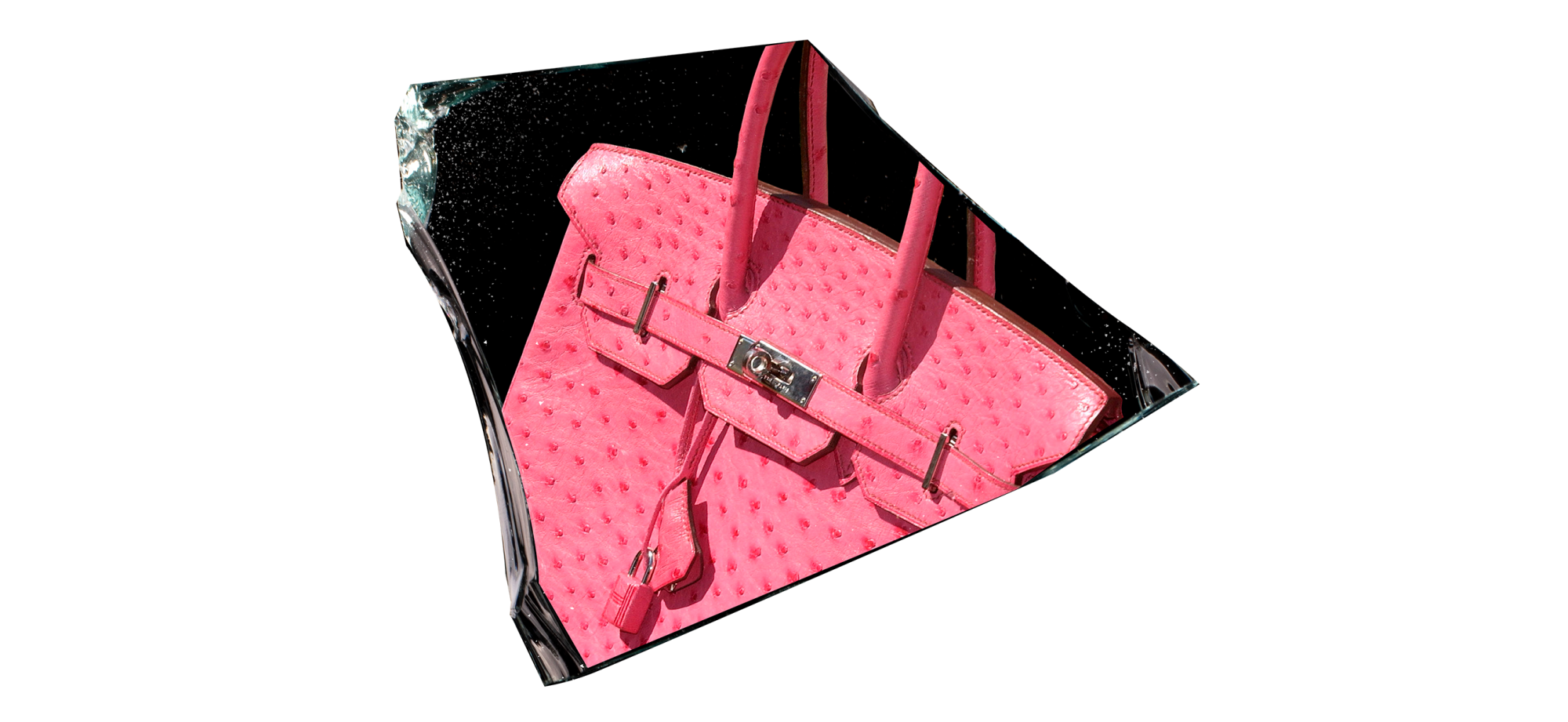
To understand the black market for Birkins, it’s necessary to understand the legitimate market, though given its confounding nature, “legitimate” might be the wrong term.
New Birkins, handmade by French artisans, are sold only at Hermès stores. One cannot just walk in and pick one out, however. Existing customers are contacted by a sales associate who “offers” a specific bag for sale. Some customers believe they must purchase whatever Birkin they are offered, even if they don’t like the color or type of leather, or risk being cut off from buying them in the future.
A Hermès spokeswoman did not respond — or even acknowledge — messages seeking information about Birkins. Interviews with bag owners and experts and a recent lawsuit suggest Birkins are bestowed on customers who spend handsomely on other products year after year.
“There is a system — or not really a system … [but] like an undisclosed rule book,” said Michael Amato, a fashion specialist at Julien’s Auctions, which has sold vintage and celebrity-owned handbags.
The sales associates who parcel out the very limited supply of Birkins don’t collect regular commission for those sales, according to a federal class-action suit filed last month by would-be bag buyers who accuse Hermès of antitrust violations. The system gives the salespeople a financial incentive to condition access to Birkins on the purchase of less-desired items that do pay commissions, such as scarves, shoes, clothes and jewelry, the suit alleges.
A class-action lawsuit in San Francisco accuses Hermès of requiring customers to purchase other luxury items before gaining access to a Birkin handbag.
These auxiliary purchases are nicknamed “Birkin bait,” and some customers believe they must buy a certain amount annually to be considered for a bag, according to interviews with owners and experts and online discussions on how to acquire Hermès bags. Birkin bait estimates start at about $20,000 and range north.
The difficulty in acquiring Birkins has only broadened their appeal, as evidenced by a 2001 episode of “Sex and the City” in which Samantha tried unsuccessfully to circumvent a purported five-year waiting list by pretending the bag she wanted was actually for actress Lucy Liu.
The plot underscored the unofficial role celebrities play in the marketing of Birkins. Martha Stewart toted a caramel Birkin to her 2004 insider trading trial. Lady Gaga graffitied Japanese characters on a white one during her 2010 tour. Dua Lipa traipsed around Paris this spring with a black one. Jennifer Lopez lugged a cream Birkin to the gym last month, and Kim Kardashian carried a crocodile one to a recent Lakers game.
Subscribers get early access to this story
We’re offering L.A. Times subscribers first access to our best journalism. Thank you for your support.
“When you combine exclusive design, celebrity pop culture and a limited amount of bags, it just generates this hype and interest,” Amato said.
The elusiveness of the bags, along with the outlay for Birkin bait, means the price tag does not reflect the true cost. The Palisades Birkin officially cost $12,500, but the owner said she considered it worth at least three times that amount because of the money she had to spend beforehand to get it.
The upshot is that, while other exorbitant bags that are more widely available may lose value the moment they leave the store, Birkins’ value only climbs.
“If you can buy one for 20 [thousand], you can probably sell it for 50 [thousand],” said Karla Martin, a Deloitte Consulting managing partner who has written about Hermès and the luxury resale market.
The demand for pre-owned Birkins has long existed, she said, but the proliferation in recent years of new sites, such as Fashionphile, the RealReal and Rebag, has made reselling them quick and easy: “What’s changed is this whole aftermarket.”
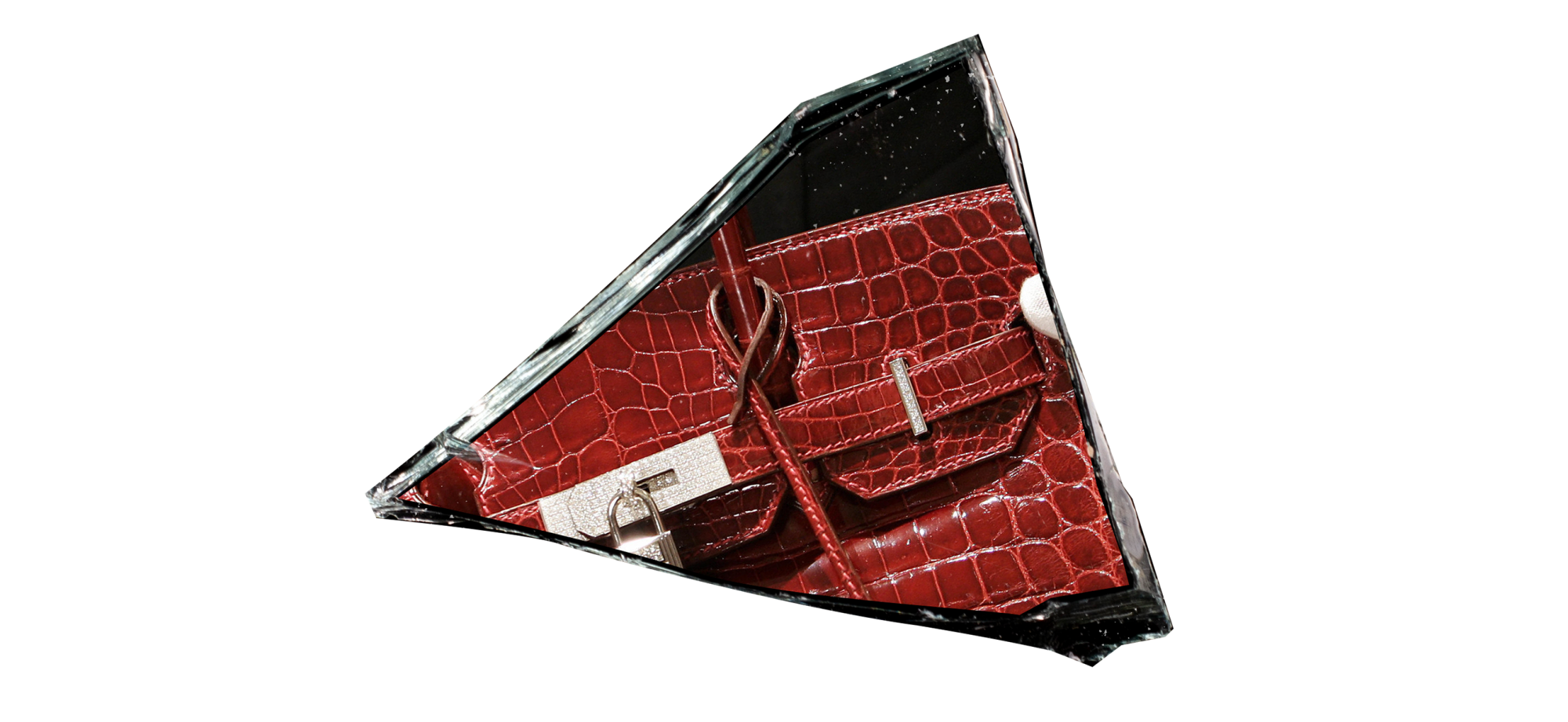
The burglary of a $3-million Hollywood Hills home in April 2023 bore the hallmarks of what police call South American theft groups: a target in an upscale block; property abutting parkland, in this case, Runyon Canyon; entry through a rear glass door; and a haul of easily fenced valuables — specifically at least $50,000 worth of handbags, jewelry and other items.
Solving the Hollywood Hills theft fell to a joint FBI-LAPD task force that investigates burglary rings from Chile and other countries. Men and women with the rings travel to the U.S., often on tourist visas, with what the FBI and law enforcement agencies across the country have described as the express purpose of stealing. Many perpetrators have arrest records in their home countries and plan to go back once they are flush with cash from their crimes, law enforcement officials have said — something that distinguishes them from asylum seekers and others trying to build a new life here.
In the Hollywood Hills burglary, a neighbor’s surveillance camera captured an Infiniti SUV leaving the neighborhood, LAPD Det. Christopher Hookstra wrote in an affidavit in support of a search warrant. He and other task force investigators connected the SUV to an apartment west of Exposition Park where several Chilean men lived. The investigators got a judge’s permission to install a GPS tracker on the SUV.
Crews of thieves who travel from Chile and other South American nations for the purpose of stealing jewels and luxury goods are not new in Los Angeles, authorities say, but such heists “are way, way up.”
With the task force monitoring it, the SUV traveled one Sunday to residential areas of Palos Verdes Estates and Manhattan Beach. Two break-ins were subsequently reported in Palos Verdes and one in Manhattan Beach in which thieves had made off with handbags and jewelry totaling an “approximate loss of $97,000,” according to a Manhattan Beach police report cited in court records.
When four Chileans climbed into the Infiniti two days later, detectives were ready. They tailed the SUV to Orange County and surreptitiously watched as the men allegedly broke into residences in Yorba Linda and Anaheim, according to the LAPD detective’s affidavit. After a third stop, task force detectives summoned Anaheim police and California Highway Patrol units, and three of the men were arrested. (Two pleaded guilty to burglary charges last month; the third is a fugitive.)
The fourth man escaped, but about 45 minutes later, a man rushed into the Exposition Park apartment building, and waiting detectives detained him. A search of the apartment turned up a semiautomatic pistol reported stolen in Santa Clarita, a Wi-Fi jammer that could be used to thwart alarm systems, and what police believed to be the detritus of numerous home burglaries — watches, necklaces, brooches, cuff links, sunglasses, some Louis Vuitton and Gucci purses, a nose ring and a stained Christian Dior handbag, according to an inventory filed in court.
But no Birkins.
Then detectives searched the fourth Chilean man’s phone, and a world of stolen Hermès opened before them, they said.
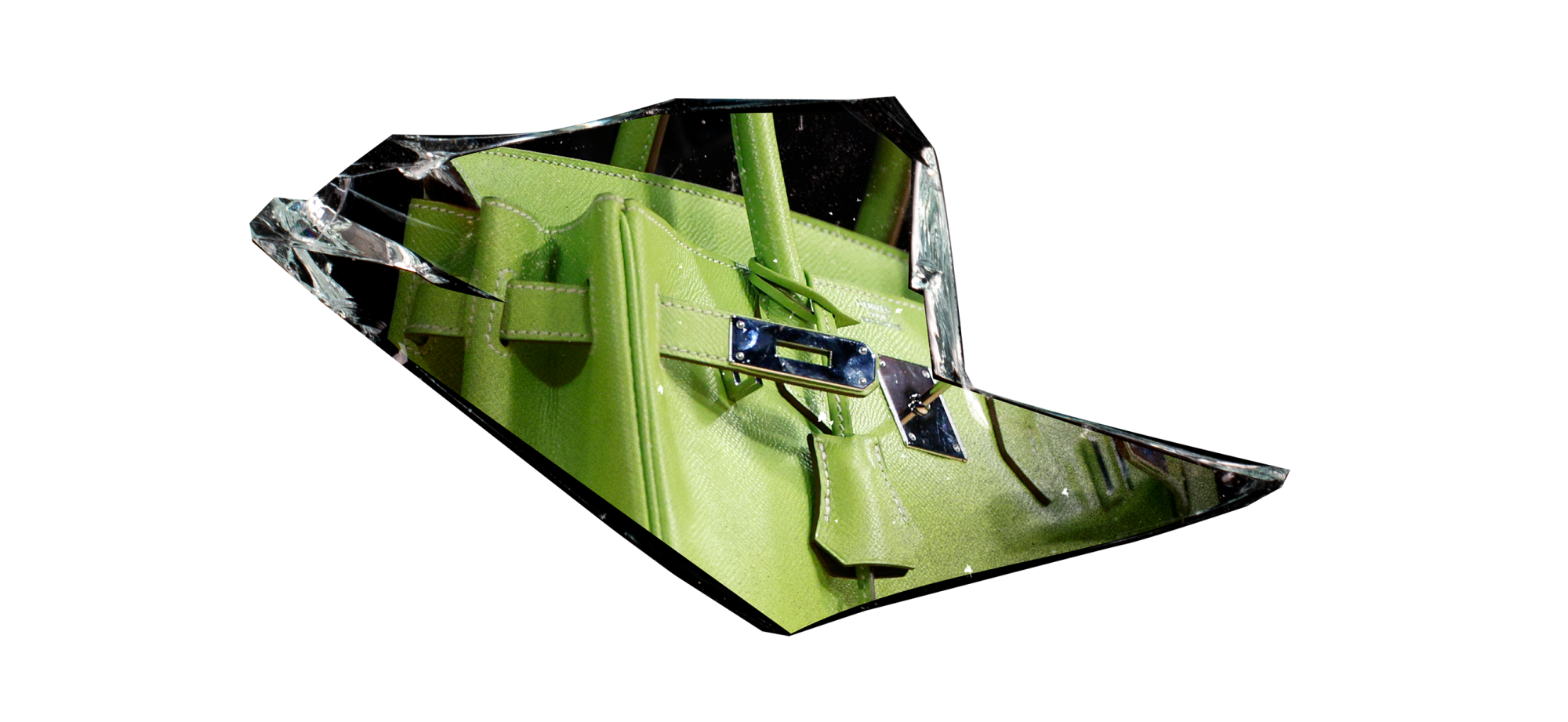
Karla Sunceri gave the appearance of having a respectable suburban life. The 52-year-old woman lived in Granada Hills in a beautifully renovated ranch house across from an elementary school. Her front yard was a showplace of emerald turf, blossoming rose bushes and young palm trees. Her Lexus had a “Jesus is Lord” license plate holder, and her son, who lived with her, was training to be an LAPD officer.
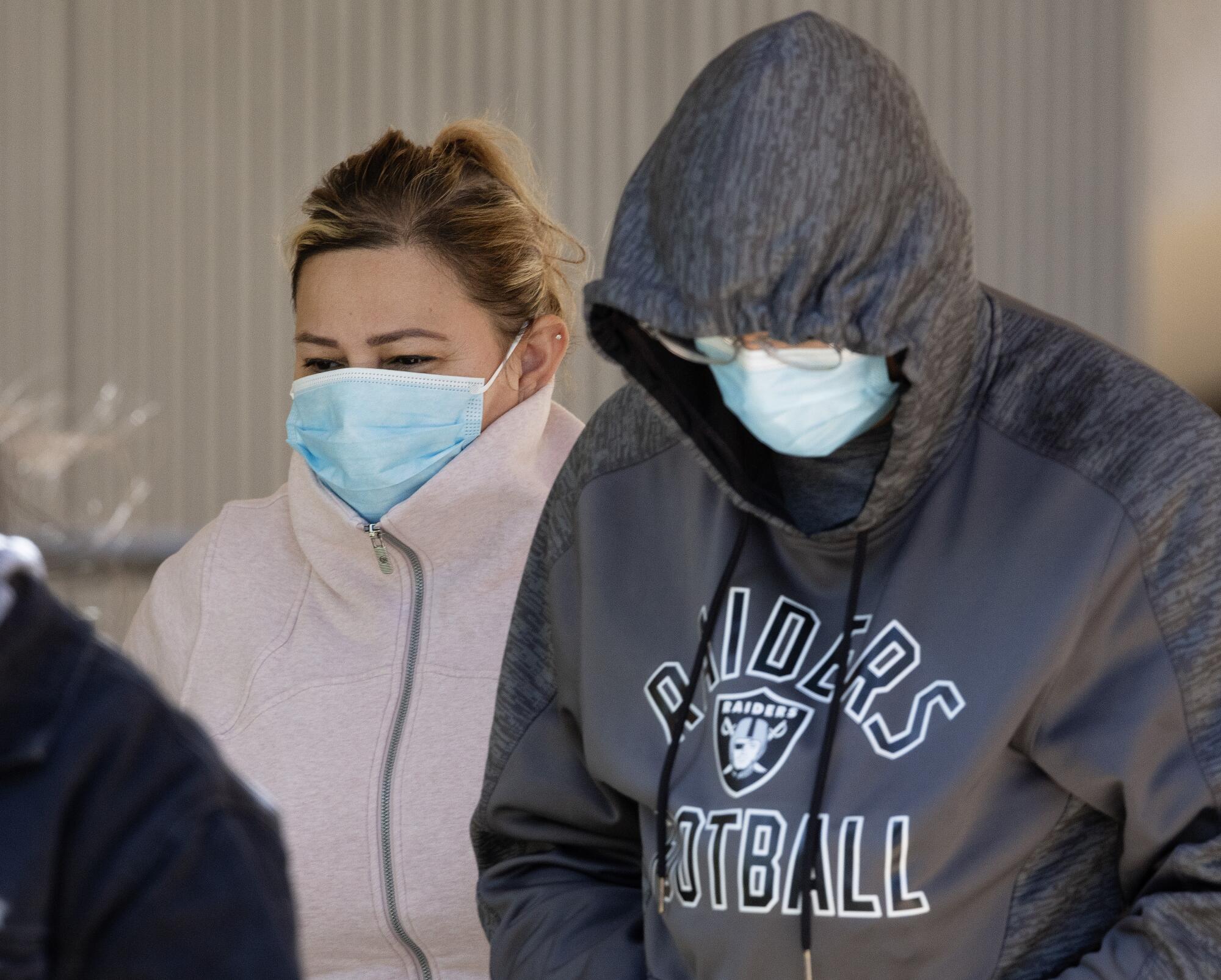
Text messages taken from the phone of the Chilean man detained in Exposition Park led detectives to question whether Sunceri’s picture-perfect existence was underwritten by purloined purses.
The suspect had “sent multiple photographs of high-end purses to ‘Karla,’ including Hermès and Chanel brands,” LAPD Sgt. Stephanie Villatoro wrote in a search warrant affidavit. “‘Karla’ appeared to bargain the price of purses with [the suspect] and directed him to inspect the handbags in specific areas to find identification codes.”
Sunceri gave the man her address, and when detectives set up a surveillance operation on her block, they found signs that he was not the only one using her as a handbag fence. In June, according to the affidavit, a Ford sedan pulled up and three men retrieved “large trash bags from the trunk, which appeared to contain bulky items, consistent with the shape and sizes of handbags” and took them into her backyard.
Detectives connected the Ford to a suspected burglar in Ventura County, and a second vehicle that showed up in Sunceri’s neighborhood to men arrested in a string of Orange County burglaries.
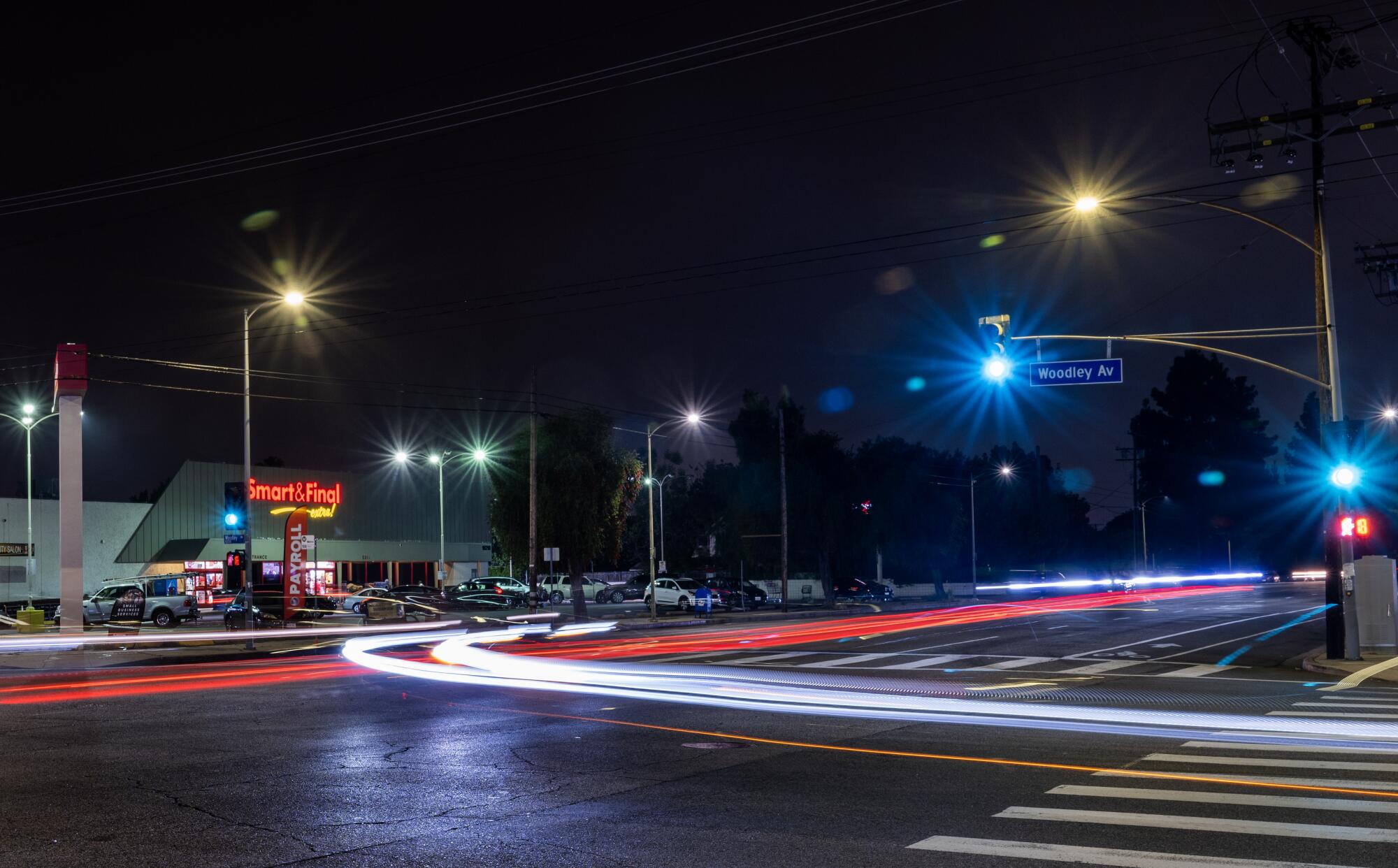
LAPD detectives tailed Sunceri’s Lexus to the parking lot of a Smart & Final Extra! store in North Hills last fall, where they say she met half a dozen times with different individuals carrying packages.
In one example, an LAPD search warrant affidavit described Sunceri as meeting “with an unidentified Hispanic male who exited a black sedan in possession of an item that appeared to be a handbag. The male entered the front passenger seat of Sunceri’s vehicle for a short period of time and later exited without the item.”
The task force asked a judge to authorize a search of her home in October, with the LAPD’s Villatoro writing, “It is your affiant’s belief that Karla Sunceri knowingly purchases luxury brand handbags obtained through criminal activity from [South American theft groups] and then resells them for profit.”
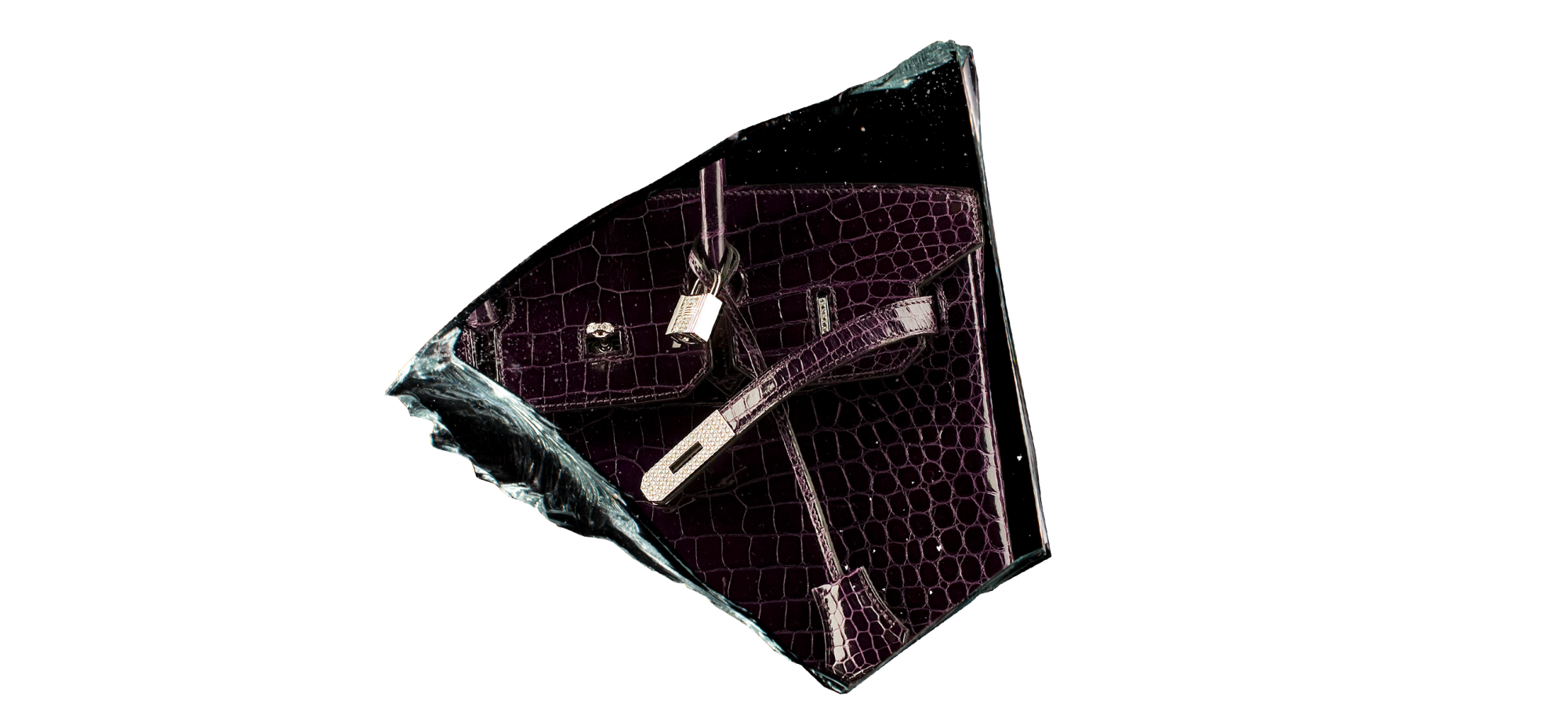
The Palisades woman sank to the ground in shock when she first saw her ransacked home. Paranoia followed. Leaving stores, she looked over her shoulder. She stopped wearing her wedding and engagement rings out of the house. For a time, she wrote down license plates of cars she thought were following her.
“My sense of security was stolen,” she said.
Her insurance policy covered the value of her husband’s stolen watches, but not her Birkin or her other bags. They do not count as collectibles, the insurer informed her. As investment pieces, Birkins are on par with fine wine, watches or art, but their collectors are often dismissed as silly clotheshorses.
“Part of it is a tiny bit of sexism for mostly women collecting these things,” said Deloitte’s Martin, who added that to the uninitiated, designer handbags have “become a symbol of things that you think are bad about the wealthy.”
In September, an LAPD detective asked the Palisades burglary victim to look at images of bags taken from the phones of a new group of burglary suspects. She immediately recognized her dark-green Birkin, pictured on a kitchen counter.
Something else also caught her attention: a collage of photos of a quilted green Chanel bag with a gold chain strap. The first picture was poorly lit and taken in what she presumed was the burglar’s bedroom. The second was a screen grab of the same bag on the luxury resale site Redeluxe. Typed below the images were two figures: $5,995 — the sale price on the site — and $3,833.
It appeared someone was comparing the reseller’s asking price to the burglars’ take.
The woman from the Palisades had never bought a used bag, but she clicked on the Redeluxe site and scrolled through an enormous inventory of used Birkins.
“I got to Page 4 or 5,” she recalled. “And my Birkin was listed.”
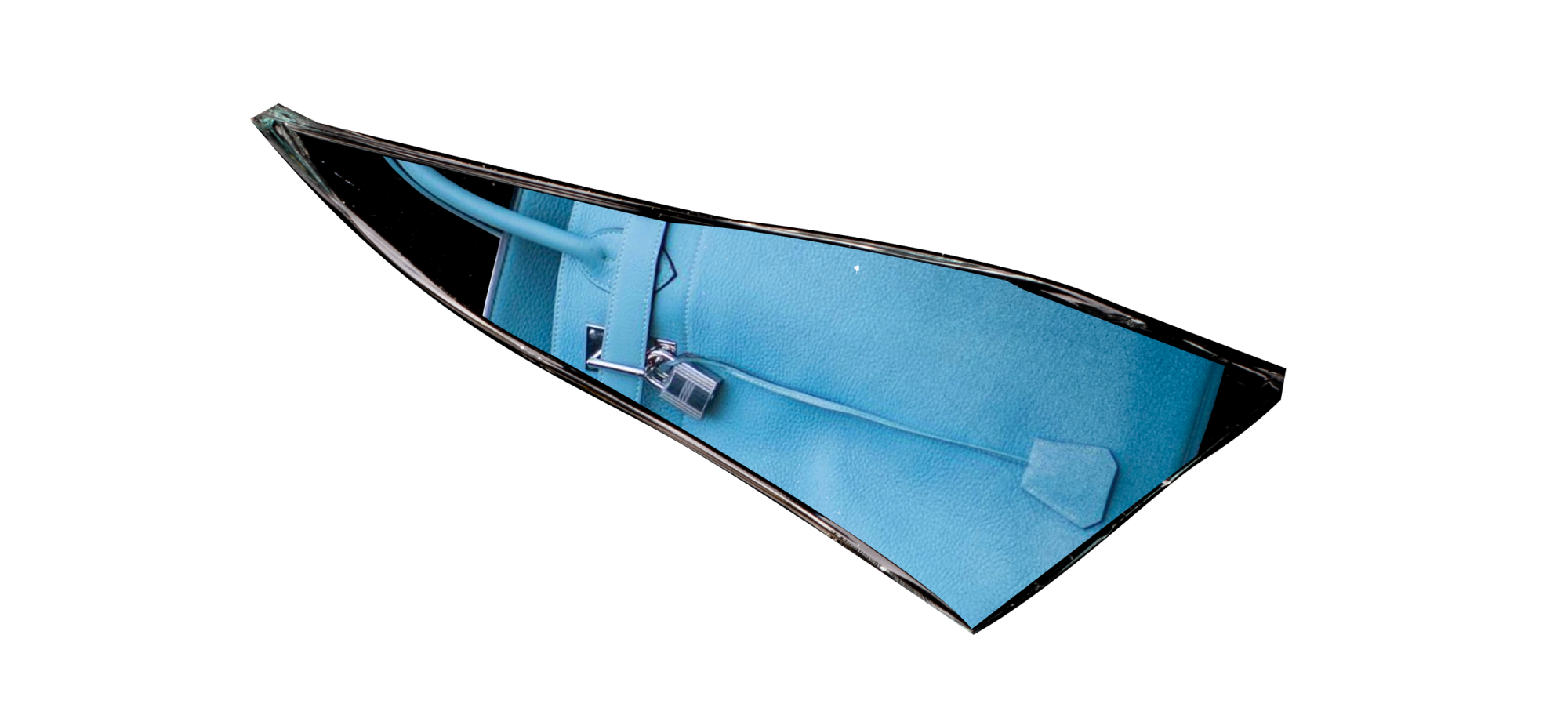
Redeluxe was born in 2019, when a cash-strapped pastor’s wife in Amarillo, Texas, wanted to treat herself to something nice. Georgia Swain pulled a small Louis Vuitton purse from the back of her closet and sold it online for enough to buy a new handbag.
“I saw an opportunity,” she recalled in an Instagram video explaining the company’s origins. “It was truly an accident, or merely just the plan of God in my life.”
Her husband, Hunter Swain, whom she’d met in Bible college, quit his church job. He later explained that God was calling them “to run this business together and to start a YouTube channel” for Christians.
The YouTube channel appears to have petered out, but the purse business flourished. Georgia Swain was the face of Redeluxe, modeling the site’s newest bags on TikTok and Instagram with influencer-worthy makeup, hair and lighting, and a cheerleader’s enthusiasm for luxury brands, especially Hermès.
“Yes! Yes! Yes,” she exclaimed on TikTok in October as she introduced a hot-pink Birkin. She sometimes filmed herself opening packages from sellers, cutting through tape and beat-up cardboard to reveal Hermès products.
“We got so many orange boxes today,” she gushed in one Instagram video.
Redeluxe racked up $7million in sales in the first three years, according to an interview Swain gave a Dallas magazine. Her husband credited “our CEO (The Holy Spirit),” but the pandemic also seems to have played a role. COVID-19 lockdowns supercharged resale sites as people hard up for money sold their bags and store closures limited in-person shopping.
Their site promised payment to sellers within 48 hours and bought a stunning array of used Birkins. Among them were so-called horseshoe stamps, ultra-rare bags that the most elite level of customers — a sort of VIP room within the VIP room — are permitted to design. Delivery of these bespoke bags can take up to three years, according to the auction house Christie’s, which sold a custom matte-yellow alligator-skin Birkin for more than $93,000 last year.
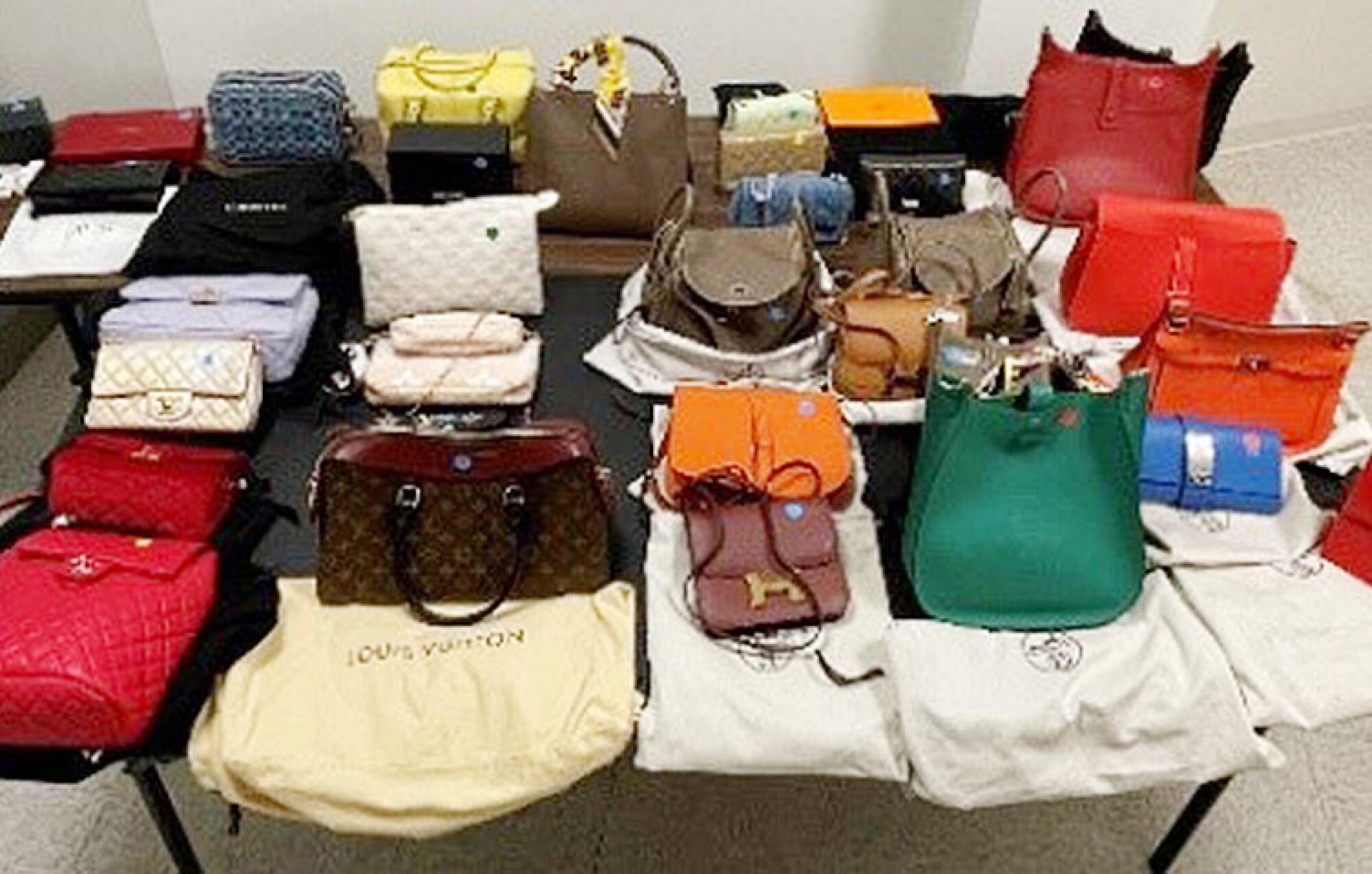
In a video showing off a newly available custom Hermès, Swain acknowledged how hard such a bag was to come by, saying, “In order to get something like this, you have to spend a lot, let’s say a LOT, of money.”
Sunceri was one of Redeluxe’s sources. The company paid her $121,245 between February and June of last year, according to bank records obtained by police and cited in a search warrant.
Who else sold to Redeluxe is not clear. The Swains did not respond to questions about their business. Their lawyer, Stephen Kennedy, declined a request to interview them or him, telling a reporter, “You are going to take someone who has no culpability and make them culpable.” (The Swains and Redeluxe have not been accused of criminal wrongdoing.)
The site was not Sunceri’s only customer, according to search warrant affidavits that allege she also sold purses on the online marketplace Poshmark and to other resale sites. The owner of one site told The Times that Sunceri had sent in Birkins in Hermès’ signature orange boxes with what seemed to be their original dust covers in place, and often accompanied by the store receipts.
The LAPD detectives were not handbag aficionados — the Palisades woman said they pronounced Hermès “her-meez” rather than the French “er-mez” — but they were experts in tracing stolen goods, and got a search warrant for records of Redeluxe’s communications and transactions with Sunceri.
A detective who reviewed the information deemed the payouts the company made to Sunceri to be “proceeds from reselling property known to be stolen,” according to a court filing.
In the case of the dark-green Birkin, the information turned over showed Redeluxe had bought it the week after the Palisades break-in. Detectives took the serial number Redeluxe provided for the bag to an Hermès store, where an employee verified it was for the bag purchased by the Palisades woman.
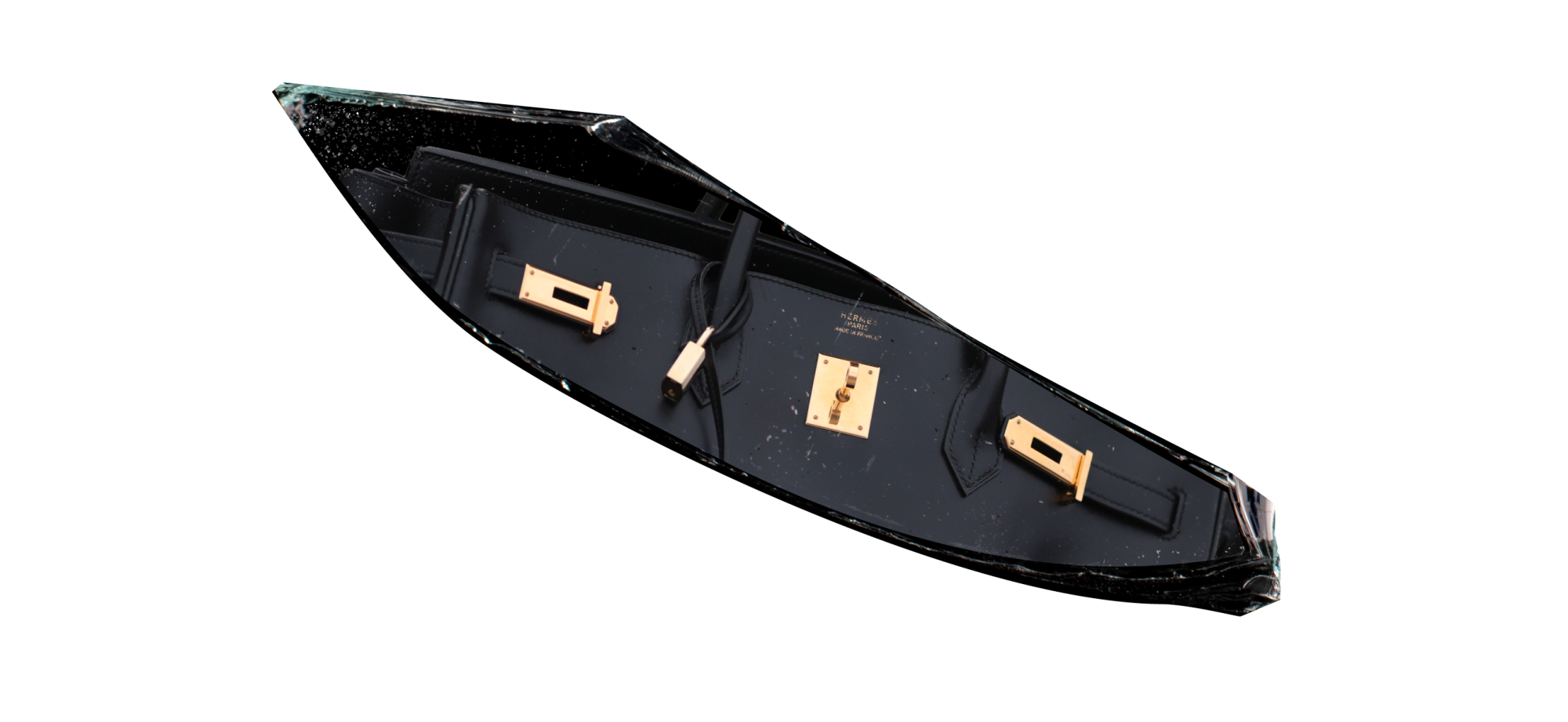
Before sunrise on Nov. 1, task force detectives backed by a contingent of other officers descended on Sunceri’s home with a search warrant. They seized 46 designer purses, including 16 with the Hermès label, and $121,031 in cash. At a Glendale storage locker she’d rented, they discovered an additional $197,100 kept alongside son Erick Palencia’s LAPD uniforms, a prosecutor later told a judge.
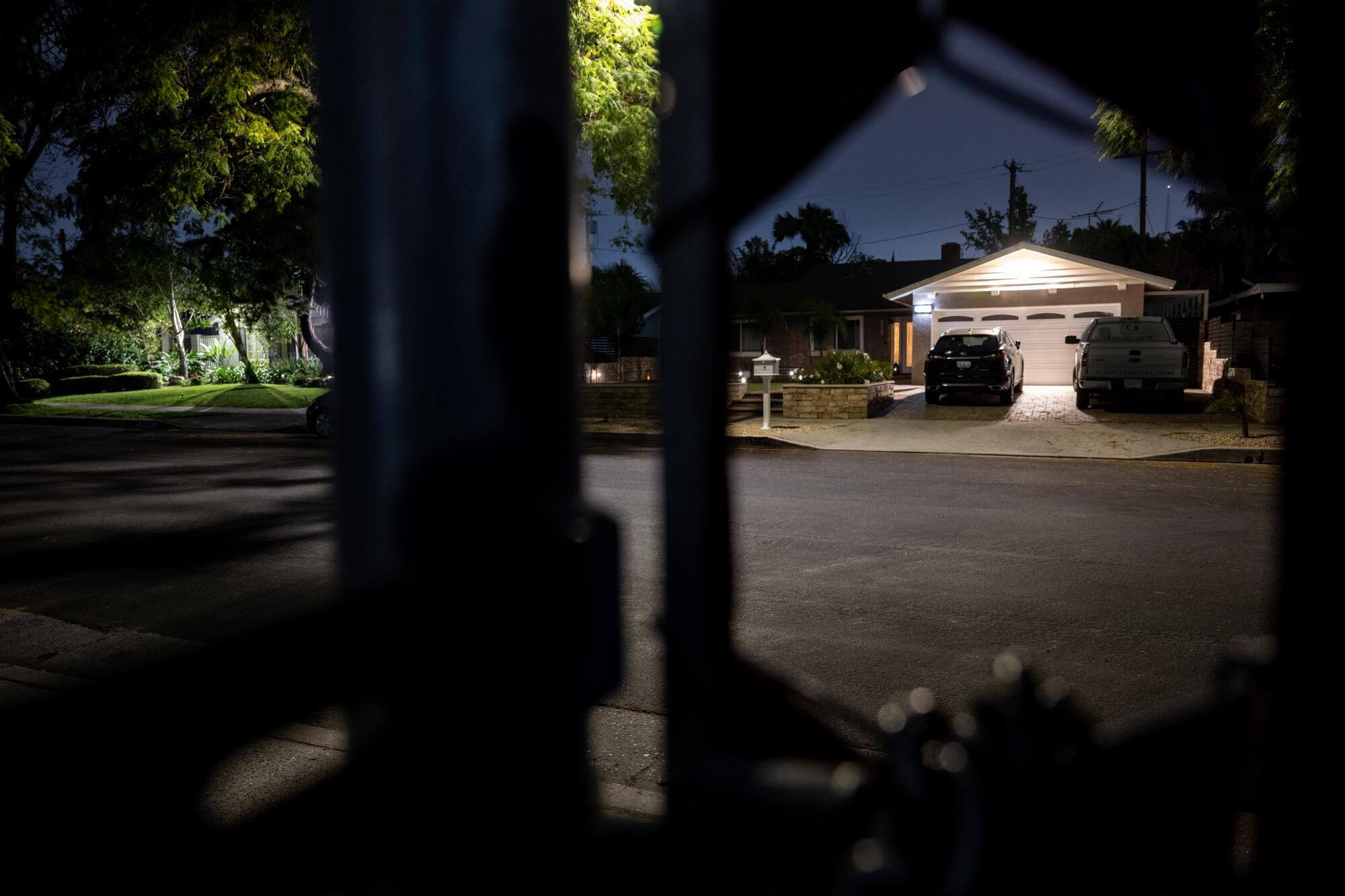
The detectives said they also intercepted a package that Palencia had shipped through UPS to a resale site the day before. It contained an Hermès bag and two Chanel purses recently reported stolen from a Newport Beach home, according to a search warrant affidavit written by LAPD’s Villatoro.
The Los Angeles County district attorney’s office charged Sunceri with 53 counts of receiving stolen property, conspiracy and money laundering.
Palencia, 27, was charged with conspiracy and receiving stolen property. A felony complaint alleged that he had shipped stolen bags and used his bank account to receive resale site payments. In a bail hearing at the San Fernando courthouse earlier this year, Deputy. Dist. Atty. Elizabeth French said Palencia was “a month short of getting his badge” when the LAPD’s Internal Affairs Division “removed him from the academy.”
Both mother and son pleaded not guilty. During bail proceedings, Sunceri asserted that she cleaned houses for a living and made $1,655 a month, and Palencia claimed his monthly take-home pay from jobs at the L.A. Philharmonic and the Griffith Observatory was $2,500.
“I don’t know if I trust these financial declarations one bit,” remarked Superior Court Judge David Stuart, before setting bail for Sunceri at $300,000 and Palencia at $100,000.
Her lawyer declined to comment; his attorney did not return messages. In response to a note left at their door, Sunceri phoned a reporter and shouted, “Don’t come to my house, or I’m going to the police.”

The burglaries continue. In the month and a half after Sunceri’s arrest, dozens of enormous homes on the Westside were hit, including a $30-million hilltop estate in Beverly Crest, a $27-million Palisades compound with views of Santa Catalina Island, a $20-million Beverly Park contemporary and a $22-million mansion overlooking the Bel-Air Country Club. Who is fencing handbags now is not clear, but the LAPD’s Boateng is certain it’s still happening. Sunceri, he said, “was not the only one.”
Redeluxe’s owners built a 3,800-square-foot home overlooking a lake last year outside Dallas, property records show, and are expecting their first child. In a recent gender-reveal video, the couple opened an Hermès box and pulled out a pink Birkin.
The woman from the Palisades still doesn’t have her Birkin. She said detectives told her Redeluxe had offered to sell it to her for $19,000, the amount the company paid Sunceri, but the woman said she refused on principle. Redeluxe did not respond to a question about the offer. Text messages she shared showed an LAPD detective informing her of apparently fruitless attempts to recover the bag.
Sometimes she saw the Birkin she believed to be hers on a shelf in the background of Redeluxe videos. Then in March, the site listed the bag for sale, with Georgia Swain telling potential buyers on Instagram, “It looks so good, you guys! I love it.”
After The Times asked about the bag, the listing was removed, and Redeluxe’s lawyer told the paper this week that the company was “in the process of transferring the purse” back to L.A. where it could be used as evidence in the criminal case. The company filed a fraud lawsuit against Sunceri in Dallas on Monday, accusing her of “a material misrepresentation, i.e., that she had lawfully obtained a pre-owned luxury handbag.”
On a recent afternoon, the Palisades woman brought some of her remaining Birkins to a meeting with a reporter. She carried them inside the kind of plain tote bags one might use for grocery shopping.
“I don’t want to be the person walking into the room with the flashy item now,” she said. “I have a completely different perspective.”
Times staff writers Brittny Mejia and Libor Jany contributed to this report.
More to Read
Subscriber Exclusive Alert
If you're an L.A. Times subscriber, you can sign up to get alerts about early or entirely exclusive content.
You may occasionally receive promotional content from the Los Angeles Times.

